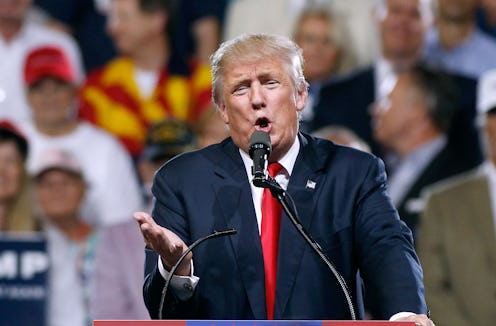News
Free The Delegates? Probably Not
Donald Trump earned more than half the available Republican delegates in the 2016 primaries; with 1,447 delegates bound to back him on the first vote at the party's convention in July, Trump will be the nominee — according to current, and past, party rules. But some within the Republican ranks are so hellbent on ousting Trump from the coveted position that they are working on an unprecedented rule change that would unbind the delegates bound to him through the primary process and allow them to vote based on their conscience. Sadly for these incensed Republicans, "Free the Delegates" is not likely to succeed.
There are several reasons for this. The first is intuitive; such a brash move by the Republican Party to defy the results of the primaries would likely result in massive outrage from the public and an exodus from the party. Although it's true that Trump did not win more than half the popular vote in the primaries, he won a lot more than any of his challengers on the right.
Second, changing the rules that bind delegates to the results of the primaries would require two things: 1) a majority of the party's 112-member Rules Committee to approve of the change, and 2) a majority of the delegates at the convention to approve it. Delegate Kendal Unruh, a member of the Rules Committee and originator of the "conscience clause" proposal, would have to get 56 of her fellow committee member delegates to back the clause, CNN reported. And other members of the "Free the Delegates" push will be working over the next month to help her do so.
We don't yet have a full list of which delegates will be on the Rules Committee, so we don't know where their loyalties lie. However, CNN noted that Trump's campaign recruited many delegates to the convention across the states who are loyal to him. That a majority of the Rules Committee, comprised of delegates selected at the state and territory level, would back a measure so clearly anti-Trump is a long-shot.
The same reasoning applies to the convention. Many of the delegates present will be loyal Trump supporters, either because they actually want him to be the nominee or because they feel the people have spoken, and it's their job to represent them. Even in the highly unlikely event that the Free the Delegates folks were able to convince 56 Rules Committee members to change the binding rule, it's even less likely that the movement could then get at least 1,237 delegates at the convention on board.
Free the Delegates is not the only vestige of the "Never Trump" movement still kicking. "Better for America" is a group of conservatives working to get a third-party candidate on the ballot in every state to draw voters from both Trump and Sec. Hillary Clinton with the goals of either winning the election or at least keeping either Trump or Clinton from securing enough electoral votes to win. With some states' ballot access deadlines already having passed and others fast approaching, this initiative is about as likely to succeed as Free the Delegates.
The persistence of movements like Free the Delegates that aim to stop what most have accepted as inevitable attests to one thing: anti-Trump sentiment is so strong among some within the Republican ranks that they are willing to invest significant time and energy into far-fetched efforts to stop him.
